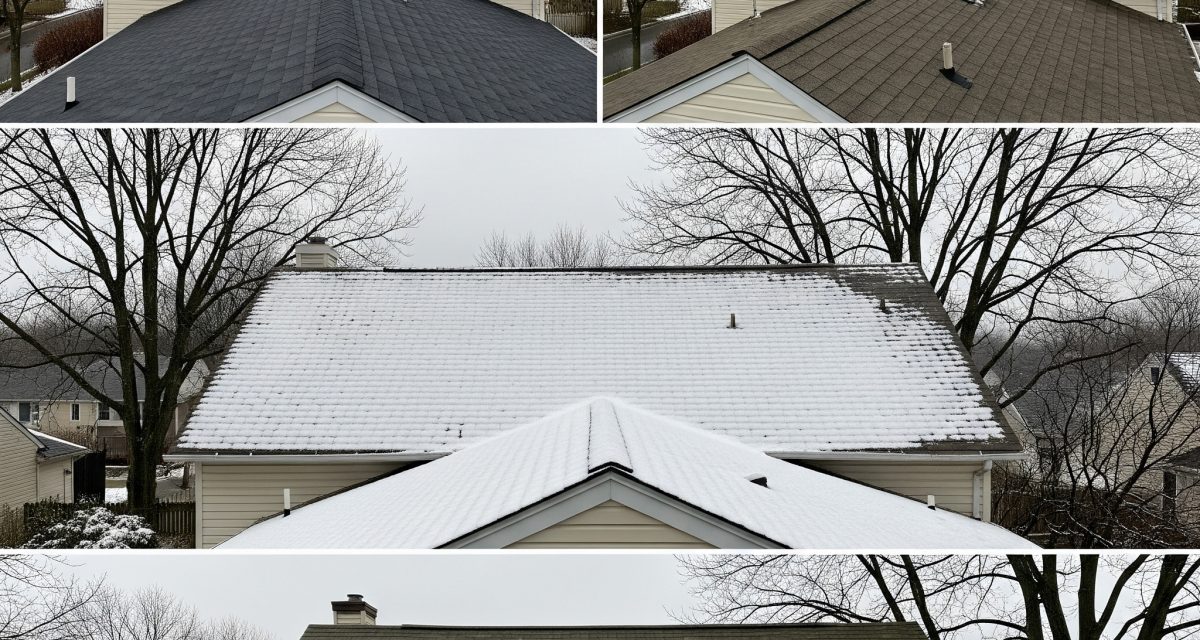New Jersey’s climate is known for its variety—hot summers, frigid winters, spring rains, and the occasional hurricane. While this seasonal diversity makes for a beautiful landscape, it can take a serious toll on your roof. As the first line of defense against the elements, your roof bears the brunt of all weather conditions throughout the year. Understanding how different seasons impact your roofing system is crucial for homeowners who want to avoid costly repairs, extend the lifespan of their roof, and protect their investment.
In this guide, we’ll break down the specific ways each season affects your roof in New Jersey and what proactive steps you can take to safeguard your home.
Winter: Snow, Ice & Freeze-Thaw Cycles
Winter is perhaps the most damaging season for roofing in New Jersey. The accumulation of snow and the formation of ice dams can wreak havoc on shingles, flashing, and gutters.
How Winter Affects Your Roof:
-
Ice Dams: When heat escapes through your attic, it melts the snow on your roof. That water then refreezes at the edge, creating a dam that prevents further melting snow from draining. The result? Water seeps under shingles and leaks into your home.
-
Freeze-Thaw Damage: Water that enters small cracks or gaps can freeze overnight, expand, and cause the material to split. Over time, this compromises the integrity of your roof.
-
Heavy Snow Loads: Accumulated snow puts extra stress on your roof, especially older ones. Flat or poorly drained roofs are particularly vulnerable to collapse.
What You Can Do:
-
Ensure proper attic insulation and ventilation.
-
Remove snow safely using a roof rake.
-
Have a professional inspect your roof and flashing before winter hits.
Spring: Rainstorms & Temperature Fluctuations
Spring in New Jersey often means frequent rain and fluctuating temperatures. While the worst of winter is over, spring weather introduces its own set of challenges.
Spring Hazards:
-
Water Intrusion: Spring showers can expose weaknesses in your roof’s waterproofing layer or flashing.
-
Moss & Algae Growth: Damp conditions allow moss and algae to thrive, which can damage shingles and reduce roof efficiency.
-
Wind Damage: Spring storms can bring gusty winds that loosen shingles or cause debris to damage the roof surface.
Maintenance Tips:
-
Schedule a spring roof inspection.
-
Clear gutters of winter debris to prevent overflow.
-
Look for missing or loose shingles and flashing.
Summer: Heat, Humidity & UV Radiation
Summer in NJ can bring sweltering temperatures and high humidity levels. These conditions are tough on roofing materials, particularly asphalt shingles and membranes.
Summer Stress Factors:
-
UV Degradation: Constant exposure to sunlight can break down the materials in shingles, making them brittle and prone to cracking.
-
Thermal Expansion: Roofing materials expand in the heat and contract at night. Over time, this movement can loosen nails, open gaps, and warp flashing.
-
Humidity Damage: High moisture levels can encourage mold and mildew growth, especially if your attic isn’t well ventilated.
What You Can Do:
-
Make sure your attic is properly ventilated to reduce heat buildup.
-
Trim trees that cast too much shade and encourage mold growth.
-
Consider UV-resistant roofing materials if you’re planning a replacement.
Fall: Leaves, Branches & Pre-Winter Prep
Fall is the best time to prepare your roof for the rigors of winter. But it’s also a season that comes with its own concerns—like falling debris and clogged gutters.
Fall Risks:
-
Clogged Gutters: Falling leaves and twigs can block your gutters, causing water to back up and seep into the fascia or under shingles.
-
Tree Damage: Overhanging branches can scrape or fall onto the roof, especially in windy weather.
-
Temperature Drops: Fall marks the beginning of the freeze-thaw cycle, so minor damage can become major quickly.
Fall Checklist:
-
Clean your gutters regularly.
-
Trim back trees that overhang your home.
-
Schedule a pre-winter professional roof inspection.
Year-Round Roofing Tips for NJ Homeowners
Staying on top of seasonal maintenance helps protect your roof from the cumulative effects of New Jersey’s diverse weather. Here are a few best practices for all-year roof care:
-
Schedule Regular Inspections: Have a licensed roofing contractor inspect your roof at least twice a year—ideally in spring and fall.
-
Keep Gutters Clean: Clear gutters and downspouts to prevent water damage.
-
Monitor the Attic: Ensure your attic is well-ventilated and insulated to prevent moisture and heat buildup.
-
Fix Issues Early: Address minor issues like missing shingles or small leaks before they escalate.
When to Call a Professional
Not all roof issues are visible from the ground. If you notice any of the following signs, call a professional roofing contractor right away:
-
Water stains on ceilings or walls
-
Missing, curled, or cracked shingles
-
Visible mold or algae growth
-
Sagging roofline or ceiling
-
Ice dams in winter
At All State Roofing & Chimney, we specialize in roof inspections, maintenance, and full replacements across New Jersey. With over 20 years of experience and thousands of satisfied customers, we know how to protect your roof in every season.
Final Thoughts
New Jersey’s seasonal weather patterns can dramatically impact your roof’s condition and longevity. From snowstorms to heatwaves, your roofing system needs regular care and maintenance to keep your home safe and dry year-round. By understanding the threats each season poses and acting proactively, you can extend the life of your roof and avoid expensive repairs.
